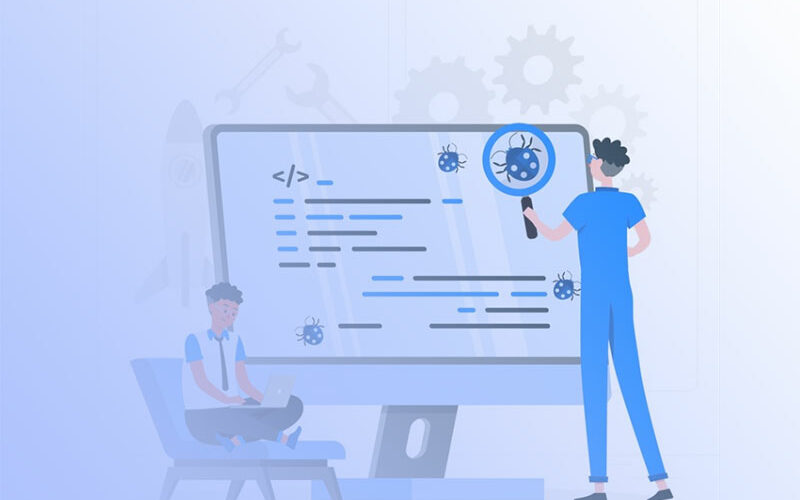Revolutionizing Software Testing: How AI is Transforming Quality Assurance

In the dynamic world of software development, ensuring the quality of applications is paramount. As applications grow in complexity, the traditional methods of software testing struggle to keep pace. Enter Artificial Intelligence (AI), a game-changer that is revolutionizing software testing and transforming quality assurance (QA) processes. This article explores how AI is reshaping the landscape of software testing, enhancing efficiency, accuracy, and overall quality.
The Rise of AI in Software Testing
The integration of AI in software testing has been nothing short of transformative. According to a recent survey by Capgemini, 57% of companies have already integrated AI into their testing processes, with another 28% planning to do so within the next year. This rapid adoption highlights the growing recognition of AI’s potential to address the challenges faced by traditional testing methods.
AI’s ability to learn, adapt, and optimize testing processes offers a significant advantage over conventional approaches. Traditional testing often relies on manual efforts and predefined test cases, which can be time-consuming and prone to human error. AI, on the other hand, can analyze vast amounts of data, identify patterns, and make predictions, enabling more efficient and accurate testing.
Enhanced Test Automation
One of the most significant impacts of AI on software testing is in the realm of test automation. Automated testing tools powered by AI can execute tests faster and more accurately than manual testers. For instance, AI algorithms can automatically generate test scripts, reducing the time and effort required for script creation. This not only speeds up the testing process but also ensures that tests are comprehensive and cover all possible scenarios.
A study by Forrester found that organizations using AI in software testing reported a 50% reduction in the time required for regression testing and a 40% increase in overall testing coverage. These statistics highlight the tangible benefits of integrating AI into the QA process. By continuously improving and adapting to new challenges, AI-driven tools help organizations maintain high standards of software quality in an ever-evolving landscape.
Research by Tricentis found that AI-powered test automation can reduce test case creation time by up to 90%. Additionally, AI-driven tools can continuously learn from past test results and optimize test cases, ensuring that they remain relevant and effective even as the software evolves. This level of automation and adaptability is crucial in today’s fast-paced development environments, where continuous integration and continuous delivery (CI/CD) are becoming the norm.
Predictive Analytics and Defect Prediction
AI’s ability to analyze historical data and predict future outcomes is a game-changer for defect prediction and prevention. By leveraging predictive analytics, AI can identify potential defects before they manifest in the code. This proactive approach allows developers to address issues early in the development cycle, reducing the cost and effort associated with fixing bugs post-release.
A study by the International Journal of Advanced Computer Science and Applications (IJACSA) revealed that AI-based predictive models could identify up to 90% of defects early in the development process. This high accuracy rate not only improves software quality but also enhances the overall efficiency of the QA process. By catching defects early, teams can focus their efforts on critical areas, ensuring a smoother and more reliable software release.
Intelligent Test Data Management
Managing test data is a critical aspect of software testing, and AI is making significant strides in this area. AI-driven test data management tools can generate realistic and diverse test data sets, ensuring that tests accurately reflect real-world scenarios. This capability is particularly valuable for testing complex applications that require a wide range of data inputs.
According to a report by MarketsandMarkets, the global market for AI in test data management is expected to grow at a compound annual growth rate (CAGR) of 18.7% from 2020 to 2025. This growth underscores the increasing reliance on AI to manage and optimize test data. By automating test data generation and management, AI reduces the risk of data-related errors and ensures that testing is thorough and effective.
Continuous Improvement and Learning
AI’s ability to continuously learn and improve is perhaps its most transformative feature. As AI algorithms are exposed to more data and testing scenarios, they become more adept at identifying patterns and making accurate predictions. This continuous learning process ensures that AI-driven testing tools remain effective and relevant over time.
What’s next?
AI in Software Testing is revolutionizing the way organizations approach quality assurance. From enhanced test automation and predictive analytics to intelligent test data management and continuous improvement, AI is transforming QA processes and delivering significant benefits. The adoption of AI in software testing is not just a trend; it is a strategic imperative for organizations aiming to stay competitive in today’s fast-paced digital world. As AI technology continues to evolve, its impact on software testing will only grow, ushering in a new era of efficiency, accuracy, and quality in software development.
- Share Creatively With Apps Like Vimeo - June 27, 2024
- Converting Arrays with JavaScript Array toString() Method - June 27, 2024
- 4 Best Free AI Coding Tools for Developers - June 27, 2024








